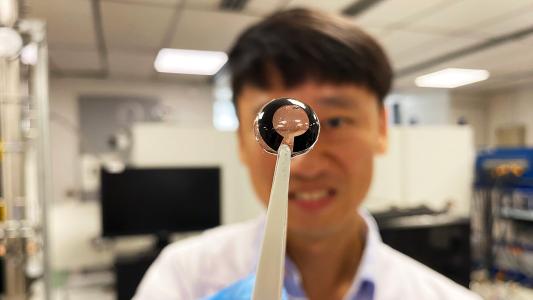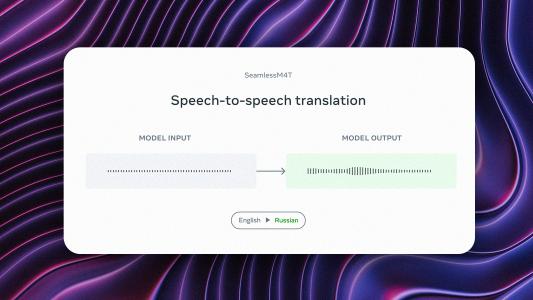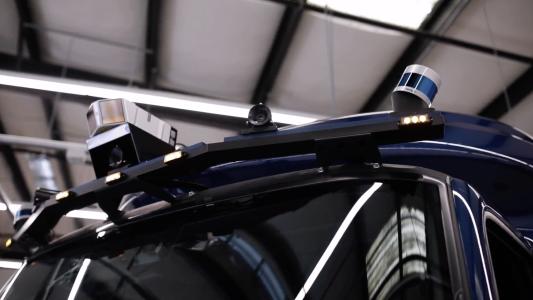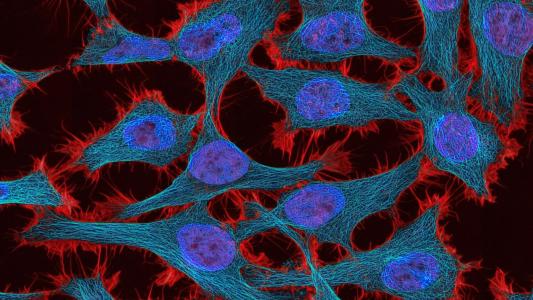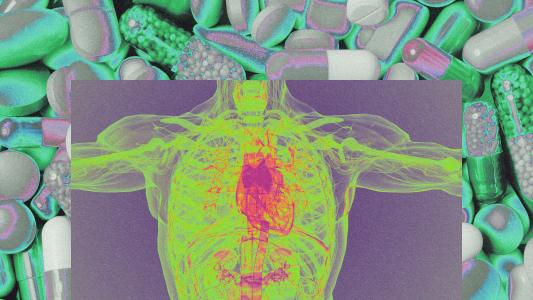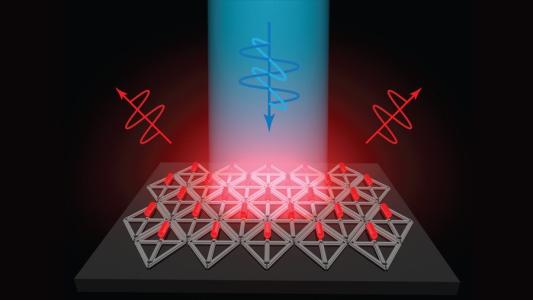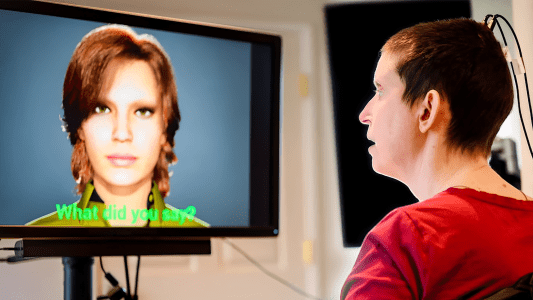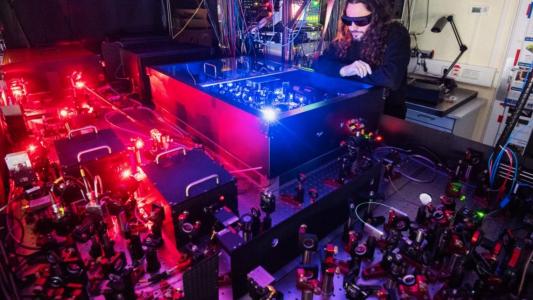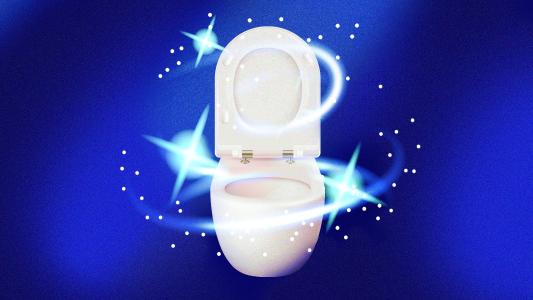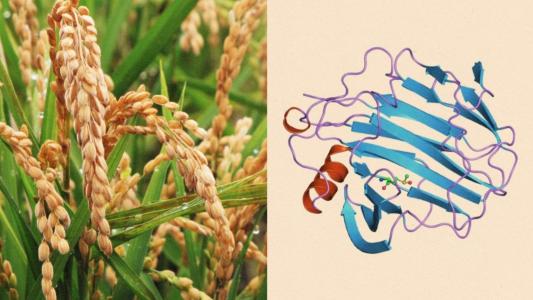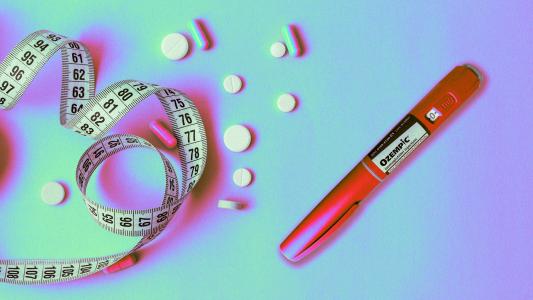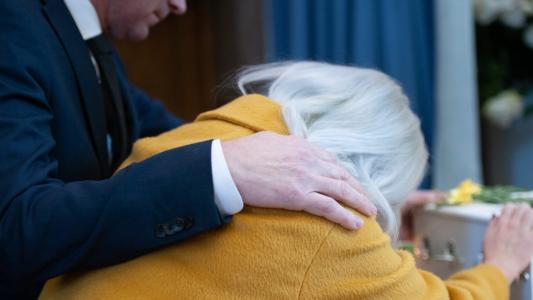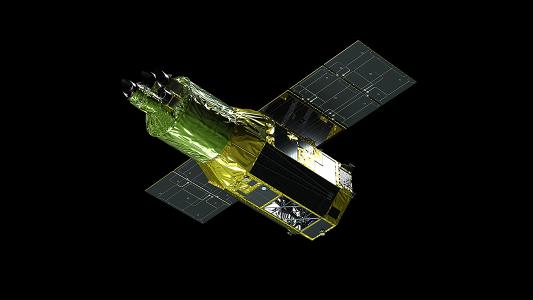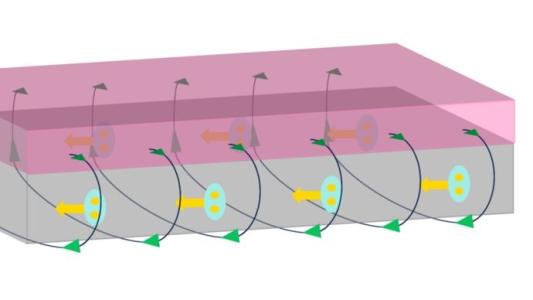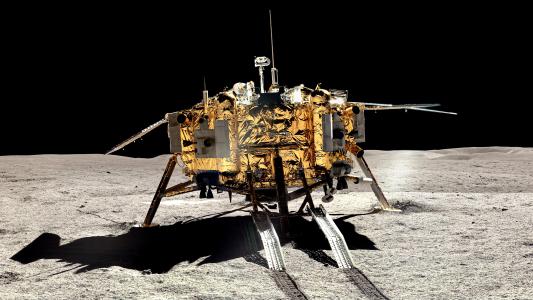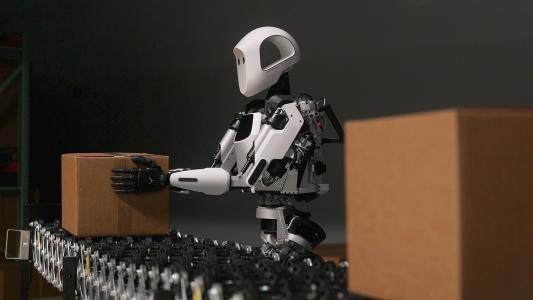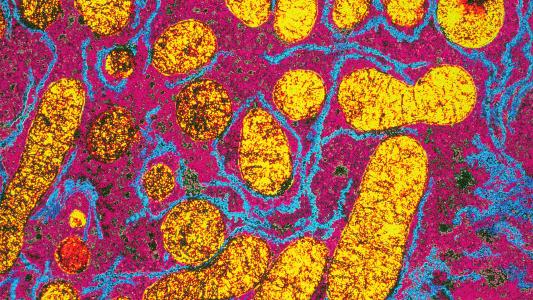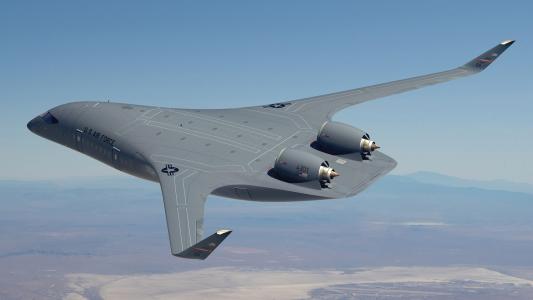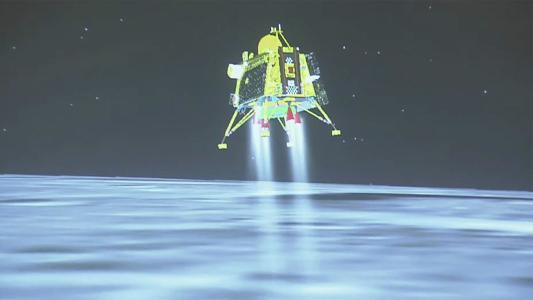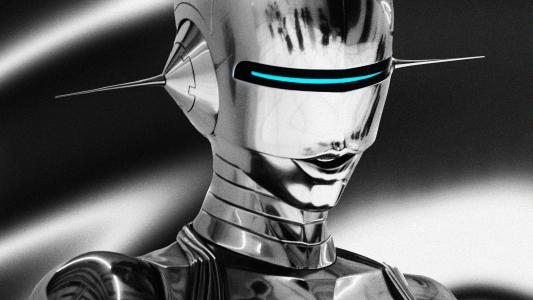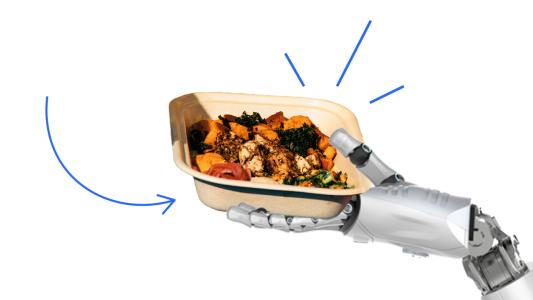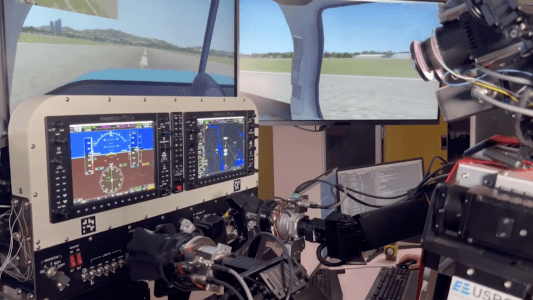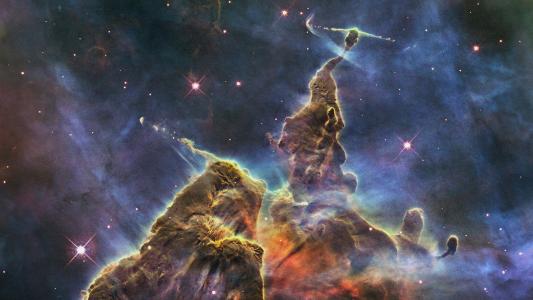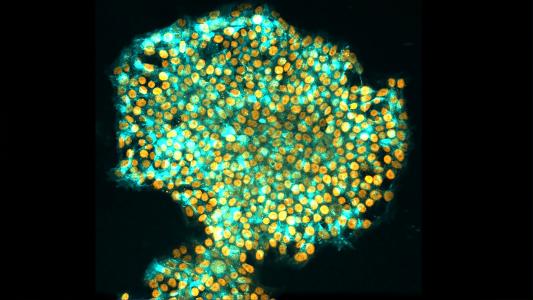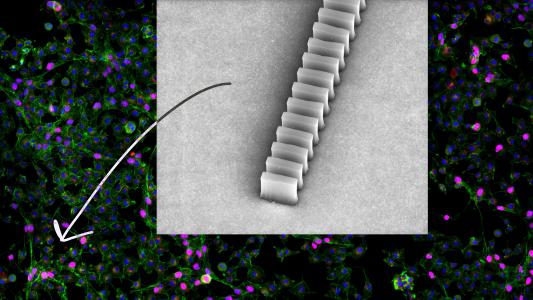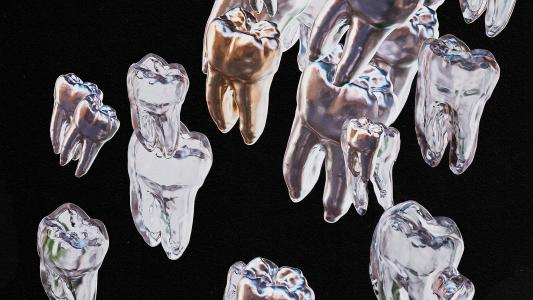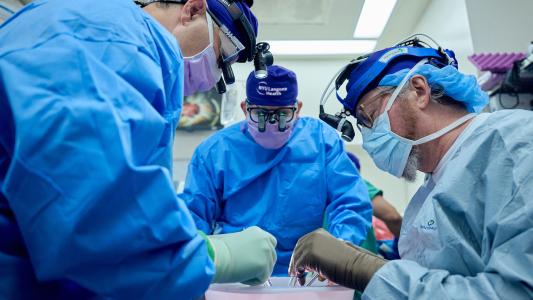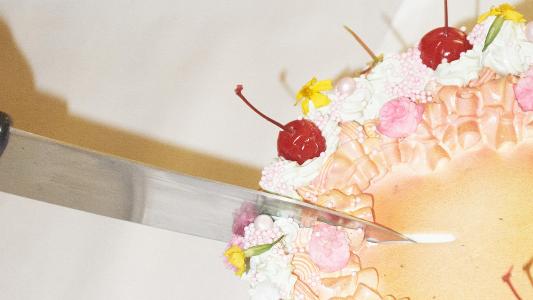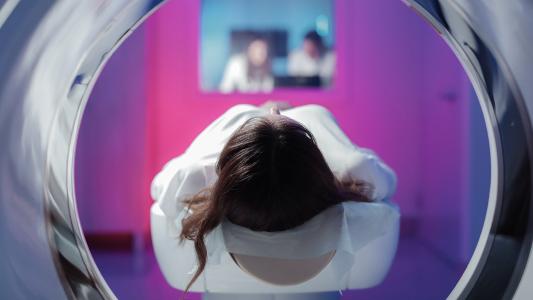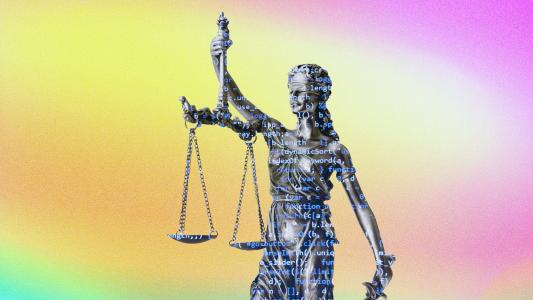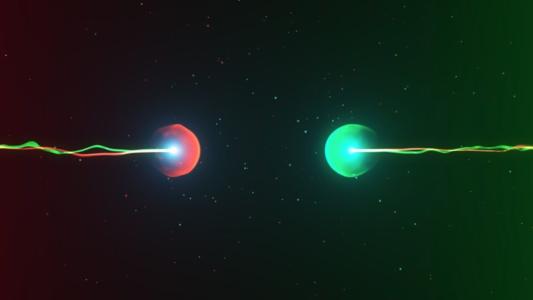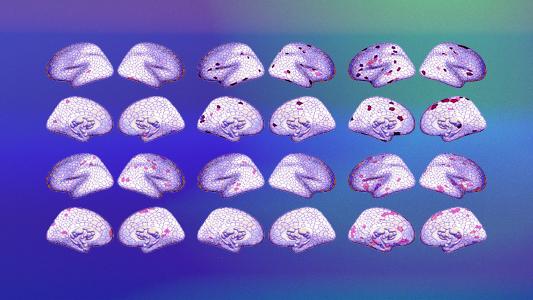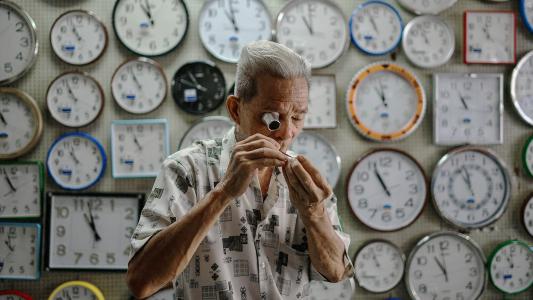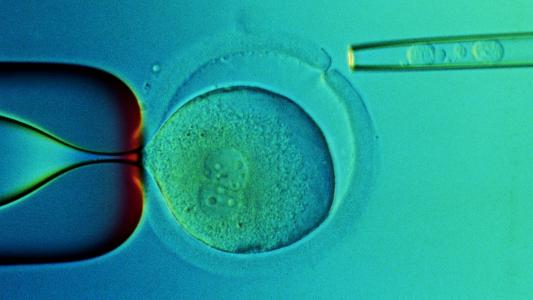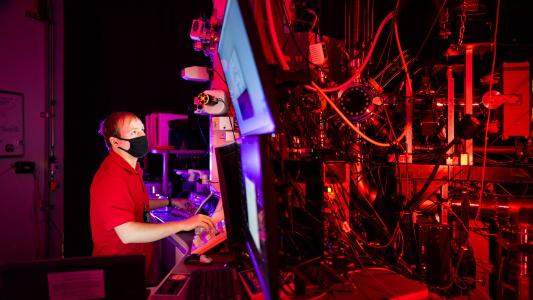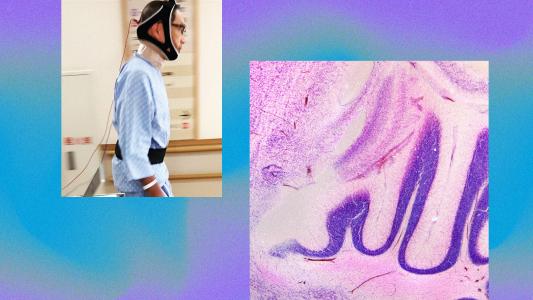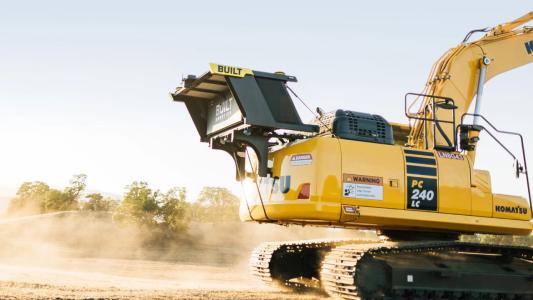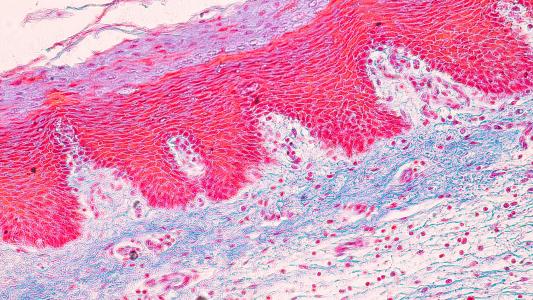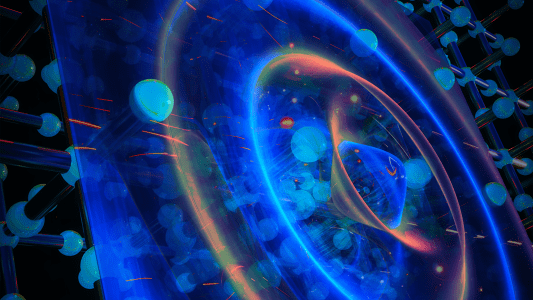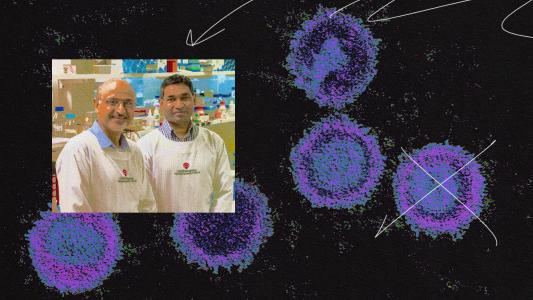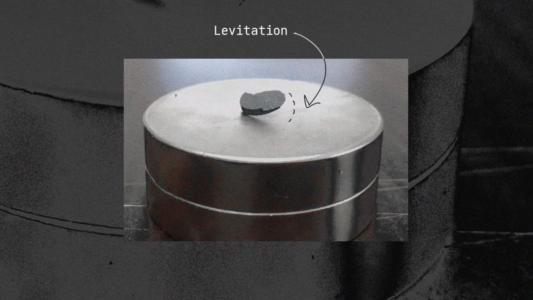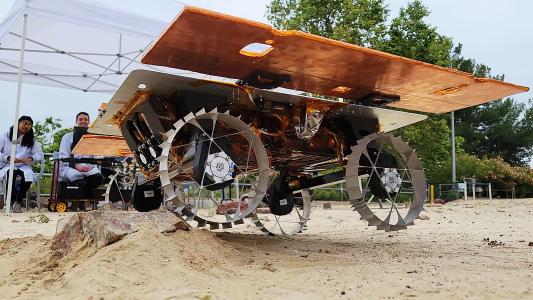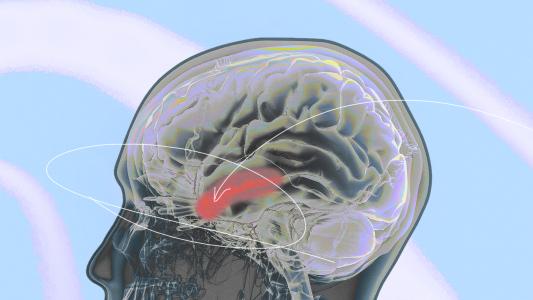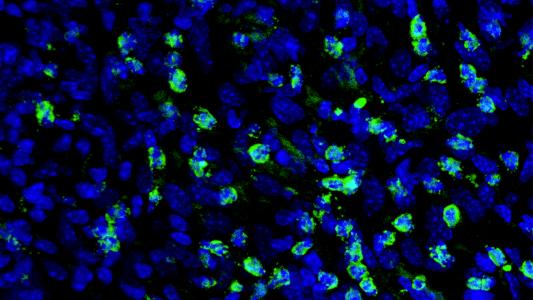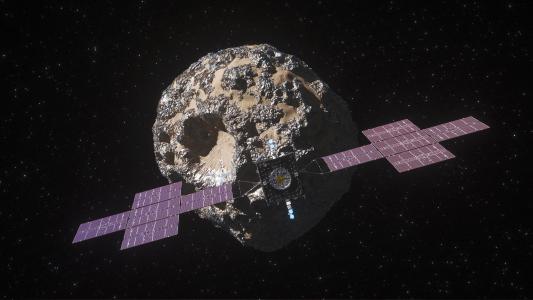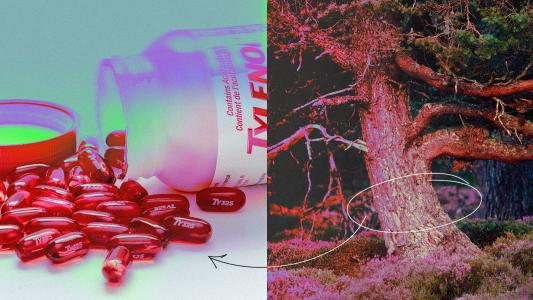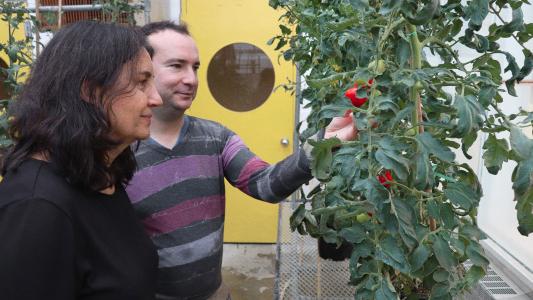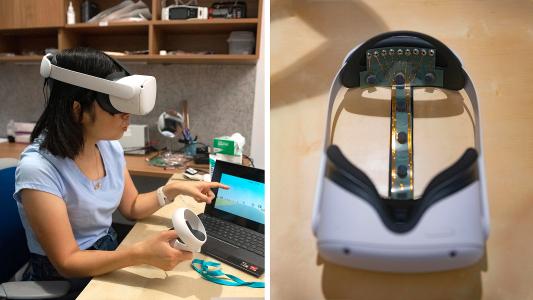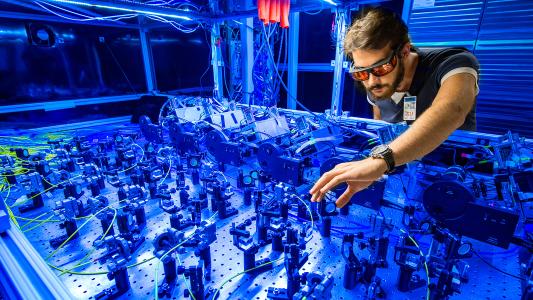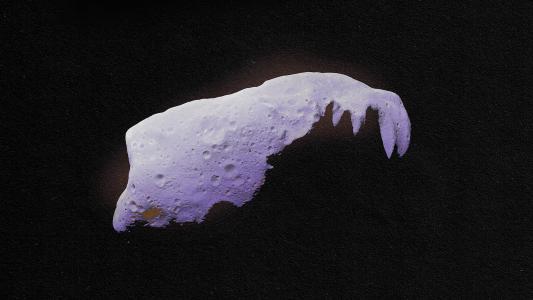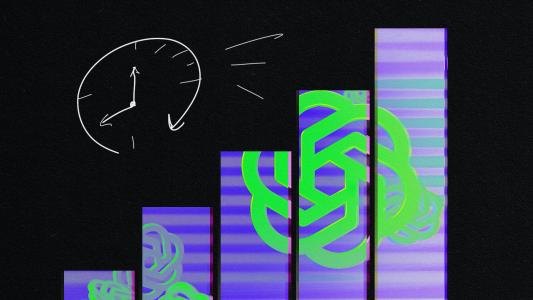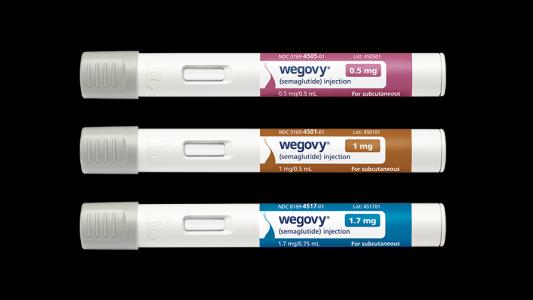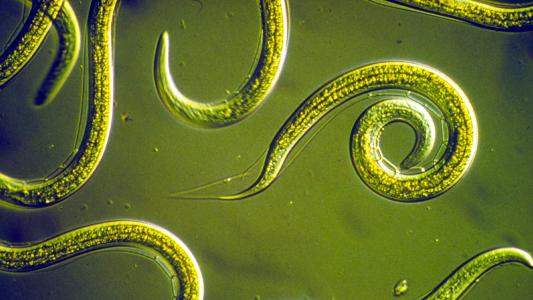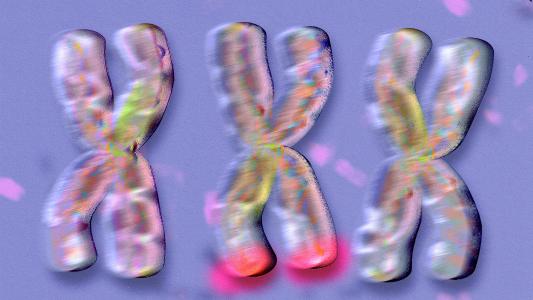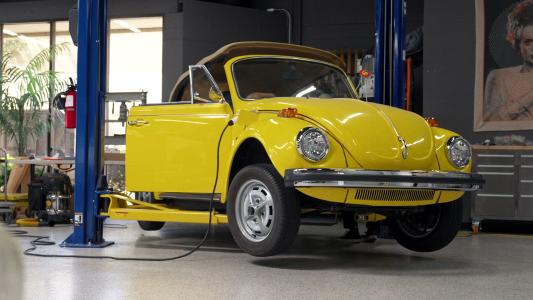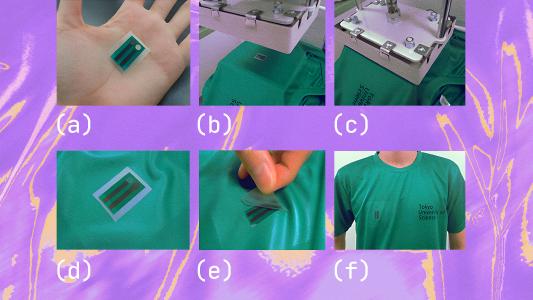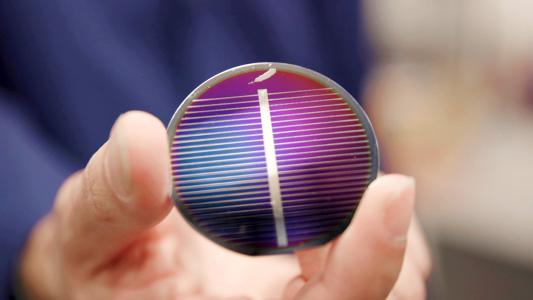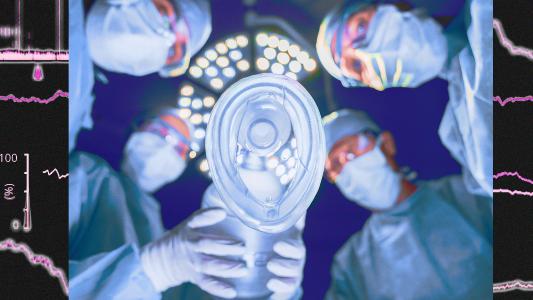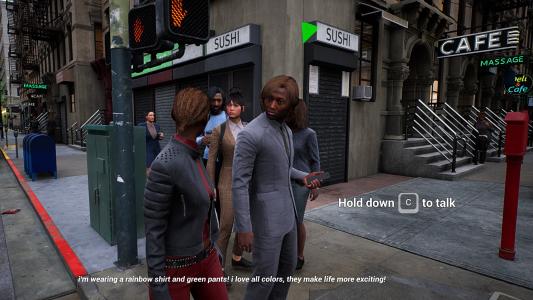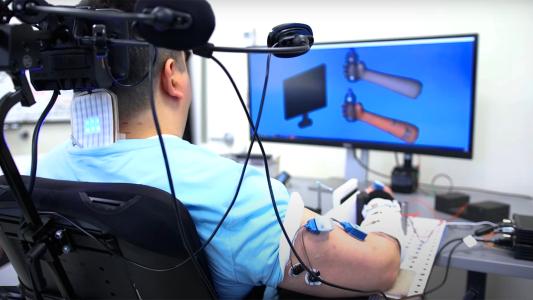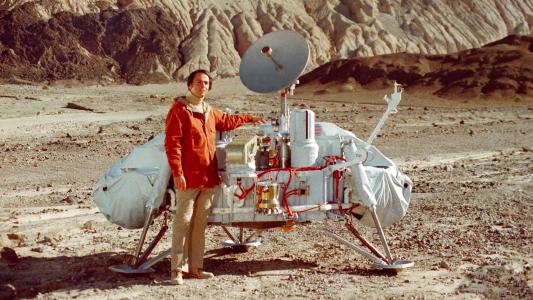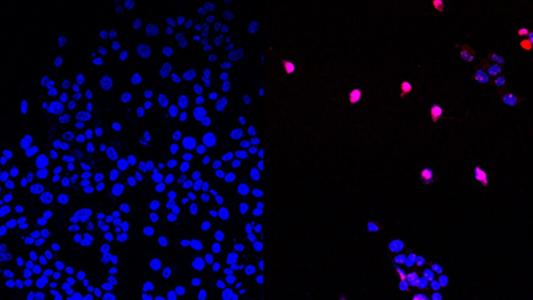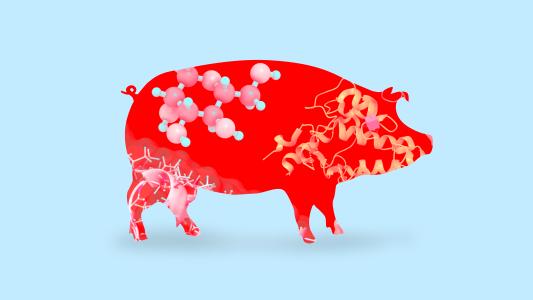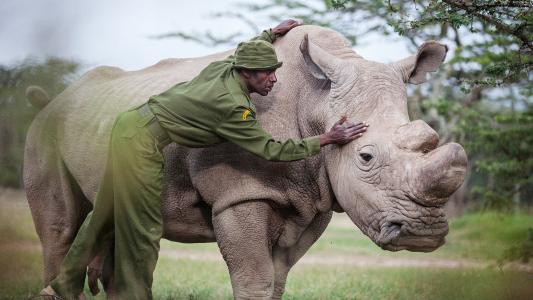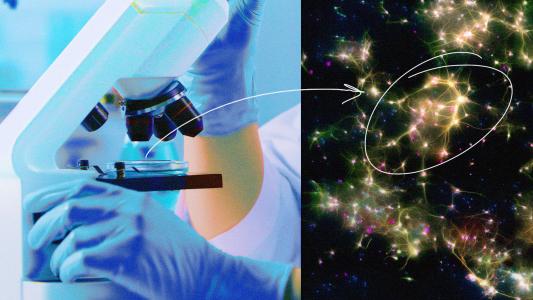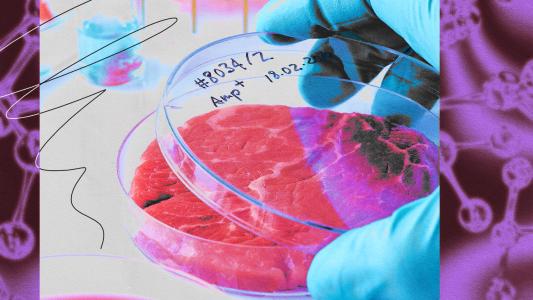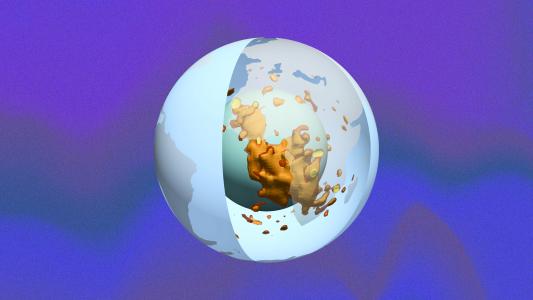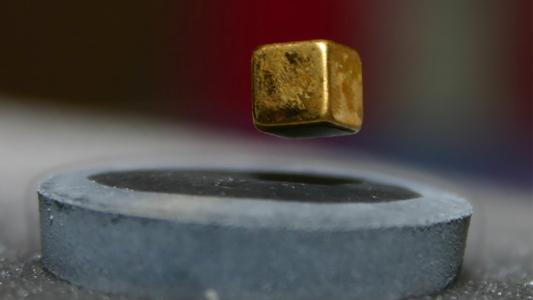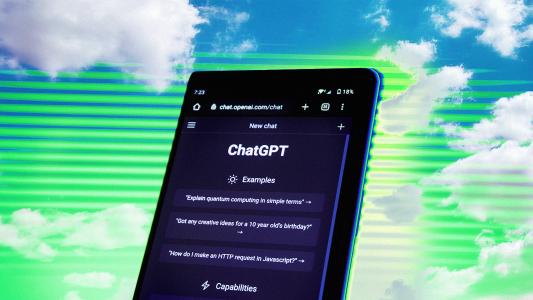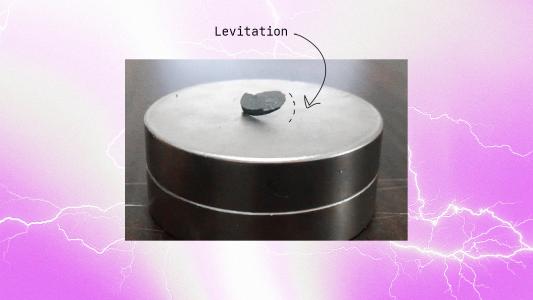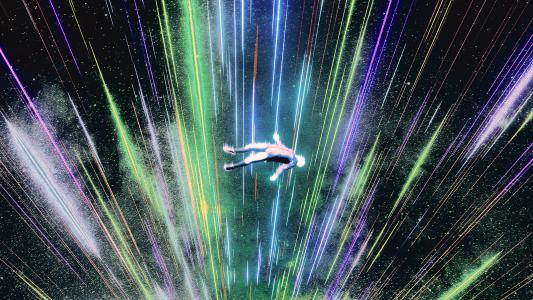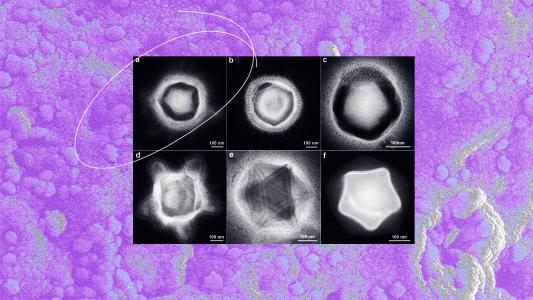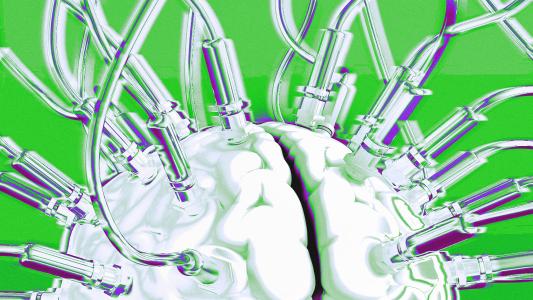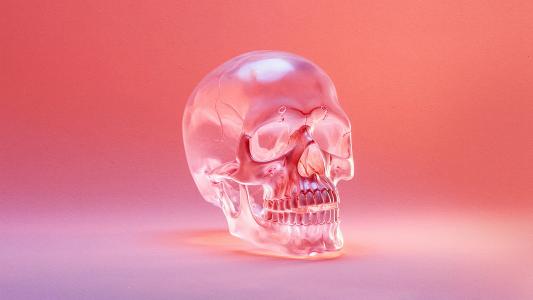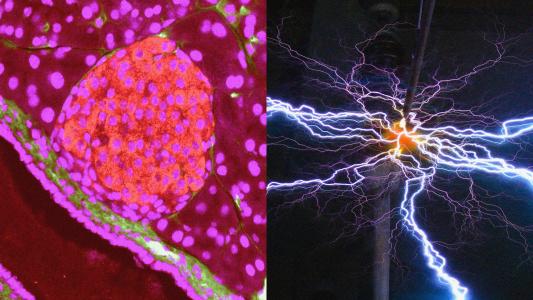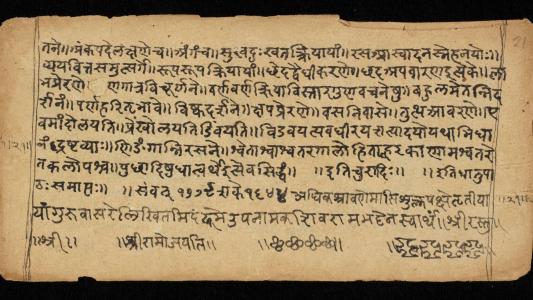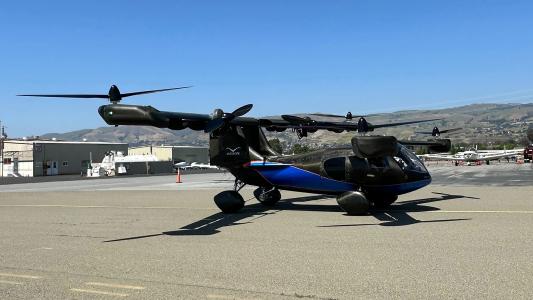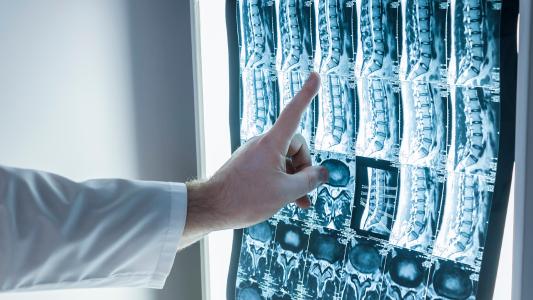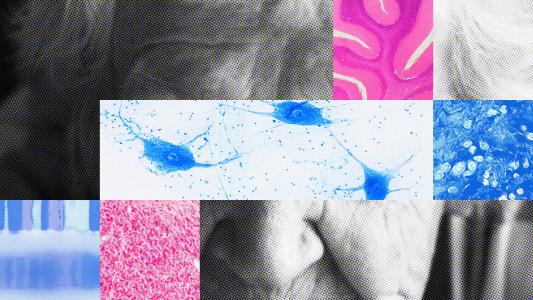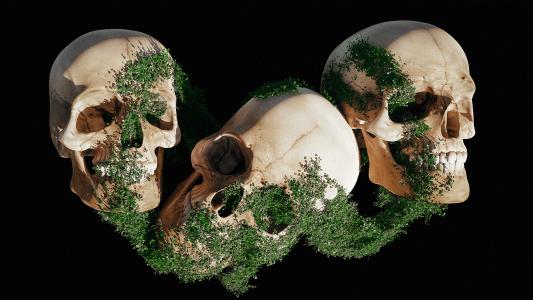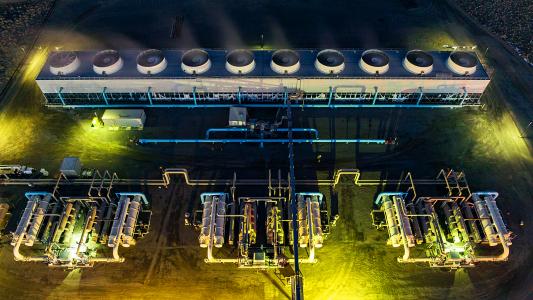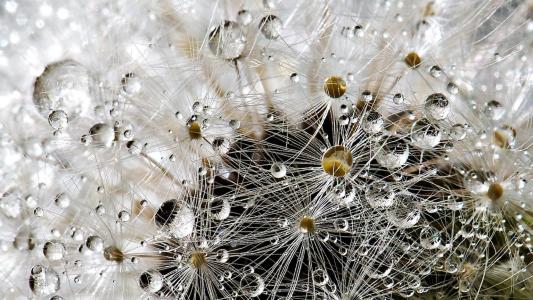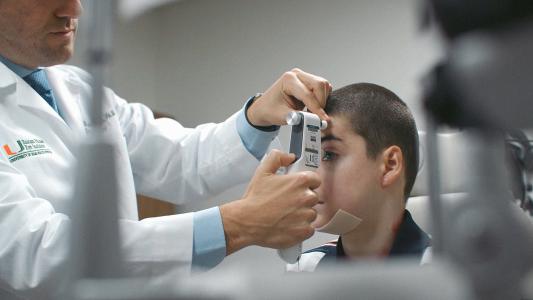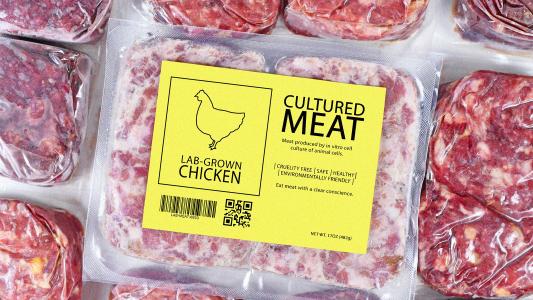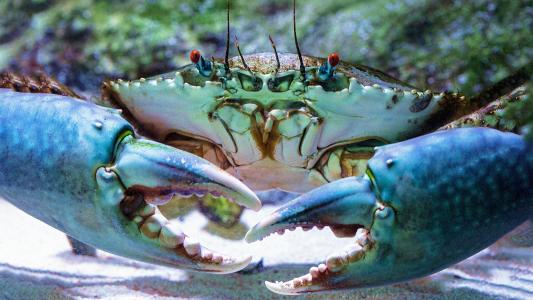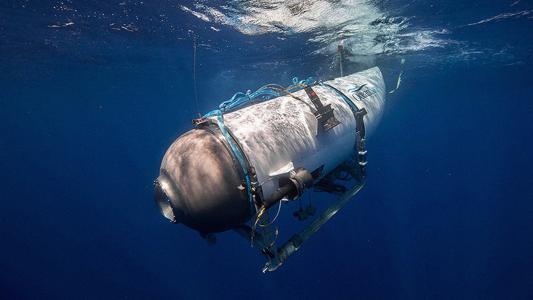New battery charged by tears will power smart contact lenses
An ultra-thin, flexible battery could lead to safe, comfortable smart contact lenses partially powered by our tears.
2023 report on Great Barrier Reef: “The story is more complicated than the headlines.”
Yes, the Great Barrier Reef has rebounded beyond our expectations. But now the heat is back on and it's time to act.
Meta’s first-of-its-kind AI can translate between any of 100 languages
Meta’s SeamlessM4T AI puts it a step closer to creating a universal translator that eliminates the language barrier for good.
Is this plant the protein food of the future?
Over the past 50 years or so, lupins have become more common as food for farm animals, and are also increasingly eaten by humans
Autonomous trucks may soon take over the most undesirable job in long-hauling
In partnership with Million Stories
Embark is one of a handful of companies aiming to automate the long-haul trucking industry, which has logged severe labor shortages in recent years.
World-first experiment shows genetically engineered bacteria detecting cancer
Genetically engineered bacteria could be used to detect a range of different diseases, particularly infections and cancers.
Weight-loss drug improves heart failure symptoms, too
Novo Nordisk’s popular weight-loss drug semaglutide (Wegovy) improved heart failure symptoms in a trial of more than 500 people.
Arrays of quantum rods could enhance TVs or virtual reality devices
MIT engineers have used DNA origami scaffolds to create structured arrays of quantum rods, which could be incorporated into LEDs.
Paralyzed woman able to speak again, thanks to brain-avatar interface
Speech BCIs that use brain implants and algorithms to translate brain signals into text are changing the lives of people with paralysis.
Is quantum computing hype or almost here?
The potential of quantum computing is vast, but it remains uncertain when or if we will be able to harness its full capabilities.
Ultra slippery toilet bowl stays clean forever
A new slippery toilet bowl developed in China could help conserve water and keep commodes effortlessly clean.
Scientists bioengineer plants to have an animal-like immune system
Scientists have bioengineered a hybrid molecule by fusing components from an animal's and a plant's adaptive immune system.
New obesity treatments could reshape the world
New obesity treatments, including GLP-1 agonists and gene therapies, could make it easier for people to lose weight and keep it off.
“5 stages of grief” is a myth — and knowing that helps us better cope with loss
The “monomyth” model of grieving offers closure and recovery, but in most traditional cultures the dead never leave the living.
NASA’s next-gen X-ray observatory is ready for launch (Updated)
XRISM is a next-gen X-ray observatory expected to revolutionize our understanding of the universe’s more energetic objects.
Simple superconducting device could dramatically cut energy use in computing
Scientists have created a simple superconducting device that could transfer current through electronic devices much more efficiently.
New moon map reveals structures hidden beneath the lunar surface
A new moon map that reveals structures hidden deep beneath the lunar surface also helps unravel the mystery of the moon’s past.
NASA partner unveils the “iPhone” of robots
Texas-based robotics company Apptronik has unveiled Apollo, a humanoid robot that could revolutionize the workforce.
Life’s stages are changing – we need new terms and new ideas to describe them
The arc of adult development has changed over the past several decades, in ways that our psychological theories are still catching up with.
One-shot gene therapy for liver disorder works in a small trial
A new gene therapy for the rare liver disorder Crigler-Najjar syndrome was highly effective in a small trial.
“Blended-wing” aircraft design promises 50% cut in fuel
Blended-wing-body aircraft aren't new, but the sector might soon start taking off for the first time.
India makes history by landing on the lunar south pole
India is the first nation to soft land on the lunar south pole, an elusive region thought to harbor water ice.
Why aliens are likely to be AI
Fundamental biological limitations will make long-distance space travel all but impossible for organisms. AI is more suitable.
Welcome to the world’s first fully robotic restaurant
In partnership with Million Stories
Mezli chef Eric Minnich designed a menu for both diner’s delight and ease of robotic cooking.
A robot pilot is ready to fly a real plane — are you onboard?
PIBOT, a humanoid robot pilot developed in South Korea, is ready to take control of a real plane for the first time.
A Pink Floyd song was reconstructed from listeners’ brain waves
Training an AI to reconstruct a song from listeners’ brain activity revealed insights about the brain that could lead to better speech BCIs.
5 revolutionary cosmic ideas that turned out to be wrong
These ideas could have revolutionized our concept of the Universe, but since evidence paves the road to reality, we've had to abandon them.
Breakthrough creates stem cells without any “memories”
A new method for creating induced pluripotent stem (iPS) cells includes a memory reset that puts the cells in a more embryonic-like state.
“Light sculpting” chip can rapidly test for thousands of diseases
Stanford researchers have developed a new type of molecular test that works without a cumbersome amplification step.
Scientists discover a gel that whitens teeth and kills 94% of bacteria
Scientists have found that light-activated oxidizing nanoparticles can whiten teeth without causing damage.
A pig kidney is still working in a person after 32 days
A gene-edited pig kidney has been functioning in a person for a record-breaking 32 days and still shows no signs of failure.
Can you manipulate your brain to stop your food cravings?
Research suggests it may be possible to "switch off" the pleasure we experience from eating certain foods, which could curb cravings.
Brain scans reveal the mystery of “hidden consciousness”
Newly identified patterns of injury linked to “hidden consciousness” could lead to better outcomes for people in comas or vegetative states.
Hackers get AI to share credit card info and endorse hate speech
At DEFCON 2023, ethical hackers targeted generative AIs by OpenAI, Google, and other tech leaders to aid responsible AI development.
New physics? Ultra-precise measurement in particle physics confounds scientists
For electrons, the predictions of the Standard Model agree with measurements. But this isn't the case for the muon, the electron's cousin.
Extreme treatment for alcoholism slashes drinking by 90% in monkeys
An in-development treatment for alcoholism dramatically reduced consumption in monkeys that previously drank heavily.
Mental illnesses affect brain structure, but in surprisingly different ways
A new brain mapping study identified commonalities in the brains of people with mental illnesses, and it could lead to better treatments.
Time has some fundamental differences from every other dimension
While spacetime itself is four dimensional, it can be decomposed into three spatial dimensions and one time dimension.
Replacing the immune system can boost cancer survival
Mixing stem cell transplantation with immunotherapy significantly improves survival rates for a deadly childhood cancer.
Scientists see metal heal itself for the first time
The first example of metal healing itself, repairing tiny cracks caused by metal fatigue, could lead to an engineering revolution.
“I’ve been here before”: DMT study explores a strange memory phenomenon
DMT can induce a sense of profound familiarity, making users feel as if they have entered an alternate reality they have visited before.
Termite mounds inspire climate-friendly air conditioning
The intricate designs of termite mounds show how to maintain a comfortable climate, without using any power.
Brain stimulation helps people with Parkinson’s walk
A noninvasive form of brain stimulation developed by Japanese researchers improved the symptoms of Parkinsonian gait in a small trial.
Autonomous construction robots are coming to a site near you
In partnership with Million Stories
Built Robotics has introduced an upgrade to construction equipment that converts regular excavators into near-autonomous digging robots.
Too much body fat isn’t the problem — malfunctioning body fat is
When fat cells are overloaded with excess nutrients, they become too big and don't receive enough oxygen, causing them to die.
Discovery of “demon” particle could aid superconductor hunt
The elusive “demon” particle has been discovered in a superconductor-like metal nearly 70 years after it was first predicted to exist.
With “thanabots,” ChatGPT is making it possible to talk to the dead
ChatGPT is making it possible to digitally resurrect the dead in the form of thanabots: chatbots trained on data of the deceased.
Vaccine for common virus could prevent MS
An experimental vaccine designed to prevent an EBV infection might also prevent cancer and multiple sclerosis.
We’re in a “fog of war” as experts and amateurs rush to replicate superconductor LK-99
A group of Korean scientists are claiming the first superconductor that works in our everyday environment. Is it real?
NASA is sending a team of autonomous robots to the moon
NASA is sending three autonomous mobile robots to the moon where they’ll have to work as a team under challenging conditions.
This unique human brain structure may have given us speech
Speech is unique to humans, yet most brain structures involved in speech are also present in Old World monkeys and other primates — except this one.
Existing heart drug may boost treatment for skin cancer
The FDA-approved heart medication ranolazine boosted the efficacy of a BRAF inhibitor in mouse models of melanoma, the deadliest skin cancer.
NASA mission to a $10,000-quadrillion asteroid is two months from launch
NASA hopes to get a glimpse at Earth's core by sending a spacecraft to 16 Psyche, an metal-rich asteroid 280 million miles away.
Scientists make pain relievers like Tylenol from pine trees rather than fossil fuels
Chemists have shown how to manufacture ibuprofen and acetaminophen using a waste product from the forestry and paper industries.
Mutant tomato could save crops around the world
A mutant tomato breed, known to botanists for decades, is highly resilient against blossom-end rot, a notorious plant disease.
Scientists tweak Meta VR headset to measure brain activity
A modified VR headset that records brain activity reveals how being immersed in VR impacts people on a neurological level.
“Muon g-2” experiment hints that a mystery is bubbling inside the quantum foam
Scientists have observed discrepancies between theoretical predictions and measurements of the muon's magnetic properties. What's hiding?
Algorithm finds a potentially hazardous asteroid missed by NASA
HelioLinc3D, an algorithm designed to spot potentially hazardous asteroids in telescope images, just found its first threatening space rock.
Reduction in air pollution may be accelerating ocean warming
Recent ocean warming may be the result of IMO 2020, a rule that dramatically reduced air pollution from the shipping industry.
Study finds ChatGPT boosts worker productivity for some writing tasks
A new report by MIT researchers highlights the potential of generative AI to help workers with certain writing assignments.
Weight-loss drug cut the risk of heart attack and stroke by 20% in large trial
The weight-loss drug semaglutide reduced patients’ risk of heart attacks, strokes, or death from heart disease by 20% in a large trial.
Can we burn metal for heat, instead of fossil fuels?
Researchers are looking at ways of boosting the efficiency of burning iron so that the metal can be used as an alternative energy source.
Nematodes survive 46,000 years on ice
A pair of nematodes from the Pleistocene survived in the Siberian permafrost by entering a survival state known as cryptobiosis.
Fragile X syndrome often results from improperly processed genetic material
Researchers discovered that the mutated gene responsible for fragile X syndrome is active in most people with the disorder, not silenced.
What body shops will look like once electric cars take over
In partnership with Million Stories
Electric vehicles are selling at record highs. Here’s how mechanics are adapting.
New workout sensor tells you when you’re at risk of heat stroke
A wearable that alerts users when they're at risk of heat stroke could be a game changer for health monitoring, if it can become commercial.
NASA gives Blue Origin $35 million to turn moon dust into solar cells
A technology that autonomously fabricates solar cells out of lunar regolith just earned Blue Origin a $35 million NASA contract.
Study finds tracking brain waves could reduce post-op complications
Researchers found brain wave signatures that could help determine when patients are transitioning into a deep state of unconsciousness.
AI now lets you have real conversations with NPCs in video games
Future video games could feature a near-infinite number of possible storylines.
AI-powered brain implant restores feeling, movement in man with paralysis
A first-of-its-kind AI-powered brain implant has restored movement and feeling in a New York man with quadriplegia since 2020.
NASA may have accidentally killed the only life we ever found on Mars 50 years ago
Life may have been discovered on Mars almost 50 years ago, but it could have been unintentionally destroyed.
Targeted therapy kills every type of cancer in the lab
City of Hope researchers are trialing a targeted therapy shown to kill more than 70 types of cancer in preclinical tests.
Want to lose weight? Try eating like a pig
From pig studies, we've learned that calorie counting matters, and eating many smaller meals is preferable to a few larger ones.
Northern white rhinos are set for extinction. Only a technological moonshot can save them.
Project BioRescue aims to create the reproductive technology necessary to resurrect the northern white rhino. But time is running out.
Australian military is funding a computer chip merged with human brain cells
The Australian military is funding research into "organoid intelligence" that involves stimulating lab-grown mini-brains with electrodes.
Lab-grown meat techniques aren’t new
Cell cultures are common tools in science, but bringing them up to scale to meet society’s demand for meat will require further development.
Theory proposes remnants of a destroyed planet lurk near Earth’s core
The two vast “blobs” buried in the Earth’s mantle could be the remains of a planet some believe crashed into Earth 4.5 billion years ago.
Ask Ethan: Is LK-99 the holy grail of superconductors?
The holy grail of superconductor science is to find a superconductor at room temperature and standard pressure conditions. Is LK-99 the first?
Immune cells in the brain may reduce damage during seizures and promote recovery
Microglia perform many functions in the brain, and their role in seizures is unclear — a new study in mice aims to find out more.
Gliding, not searching: Here’s how to reset your view of ChatGPT to steer it to better results
To have a productive session with ChatGPT, think of it as a glider that takes you on journeys through knowledge and possibilities.
Scientists rush to recreate room-temperature superconductor
Claims that a material called “LK-99” is a room-temperature superconductor are being put to the test by the scientific community.
Scientists monitored the brains of 4 dying patients. Here’s what they found
Researchers found a surge of neurophysiological activity in the dying human brain, including in regions associated with conscious processing.
These giant viruses are unlike any we’ve ever seen before
Scientists have discovered a variety of “giant viruses” unlike any ever seen before in Massachusetts’ Harvard Forest
Viral room-temperature superconductor claims spark excitement
South Korean researchers claim they've created a material capable of room-temperature superconductivity, a holy grail of science.
Brain-computer interfaces could let soldiers control weapons with their thoughts
Brain-computer interfaces raise many ethical questions about how and whether they should be used for certain applications — including war.
Why death matters
Reframing life in terms of death reveals some of the biggest philosophical problems with how we think about living systems.
New study shows how electricity can turn on genes
A prototype wearable demonstrates a novel way to trigger gene expression: by zapping cells with electricity.
PhD student solves a mysterious ancient Sanskrit text algorithm after 2,500 years
For centuries, a grammatical problem surrounding a meta-rule in Pāṇini's Aṣṭādhyāyī has risked readers misinterpreting the text.
A $790,000 flying car is now cleared for takeoff
Air mobility startup Aska has begun flight testing the Aska A5, an SUV-sized flying car that costs an eye-watering $789,000.
What lies beneath our irrational decisions
In new book, an MIT scholar examines how game-theory logic underpins many of our seemingly odd and irrational decisions.
AI will soon tell doctors how to predict your future health
A new AI can can analyze X-rays for a important predictor of heart disease with a high degree of accuracy.
Two CRISPR treatments for Alzheimer’s ace early studies
Two teams of researchers have used CRISPR to alter the genes of mice to alleviate signs of Alzheimer’s disease.
Almost everyone fears death — but not in the same ways
Fear of death may be the most primal, normal human fear, but it's one we all experience differently.
Google-backed startup sets two world records in geothermal power
Google-backed startup Fervo Energy has successfully tested a record-breaking enhanced geothermal system in Nevada.
Where next for crypto and the evolution of blockchains?
The new book "Data Money: Inside Cryptocurrencies, Their Communities, Markets, and Blockchains" explores how crypto is made and traded.
Quantum superposition begs us to ask, “What is real?”
The weirdness of quantum superposition means the same experiment, repeated many times under the same conditions, can give different results.
First-of-their-kind eye drops reverse blindness in teen
A topical gene therapy designed to heal the wounds of people with “butterfly skin disease” has now been used to reverse blindness.
By 2040, 60% of “meat” won’t come from dead animals
"Novel vegan meat alternatives" and cultured meat will likely become competitors to traditional meat products, the report says.
Crab shells boost the lifespan of zinc-ion batteries
A zinc-ion battery containing crab shells could serve as the foundation for future renewable energy storage systems.
